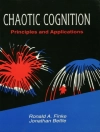This book provides a highly accessible, skills focused entry point to the interventions, techniques, strategies, and core knowledge you need to work with children and young people.
Divided into four parts, it covers:
– Core Knowledge: Understanding Development from 0-18 years
– Key Skills: The Therapeutic Process
– Key Skills: Interventions, Techniques & Strategies
– Key Considerations: Contexts & Client Groups
Its bite sized entries include suggested additional resources to help you explore the topic further, and throughout the book you will find case studies and exercises to aid your understanding.
This book is ideal for mental health and therapy trainees and practitioners who need a foundation in working with children and young people.
Table des matières
Introduction
Part I – Core Knowledge: Understanding Development from 0-18 years
1.1 Development – A Dynamic Interplay Model
1.2 The Importance of Play
1.3 Theory of Mind
1.4 Cognitive Development
1.5 Attachment Theory
1.6 Object Relations Theory
1.7 Humanistic Theories of Development
1.8 Neurobiological Development
1.9 Puberty & the Adolescent Transition
1.10 Environmental & Systemic Factors
1.11 Developmental Implications for Counselling
Part II – Key Skills: The Therapeutic Process
2.1 Core Principles of Integrative Counselling with Children and Adolescents
2.2 Core Relationship Components
2.3 The Therapeutic Frame
2.4 Building Rapport
2.5 Contracting
2.6 Limit-Setting
2.7 Assessment & Integrative Formulations
2.8 Risk Assessment & Safeguarding
2.9 Confidentiality & Consent
2.10 Outcome & Process Measures
2.11 Cultural Competence
2.12 Working with Parents/Carers
2.13 Record-Keeping & Data Protection
2.14 Developing & Sustaining the Therapeutic Relationship
2.15 Managing Ruptures in the Therapeutic Alliance
2.16 Transference & Countertransference
2.17 Developing Advanced Empathy
2.18 Tracking
2.19 Endings
2.20 Ethical Issues
2.21 Self-Disclosure
2.22 Working with Other Professionals
2.23 Self-Care for Counsellors
2.24 Clinical Supervision
Part III – Key Skills: Interventions, Techniques & Strategies
3.1 Skills & Interventions
3.2 Symbol & Metaphor
3.3 Play-Based Interventions
3.4 Creative-Arts Interventions
3.5 Therapeutic ‘Chat’
3.6 Cognitive-Behavioural Therapy (CBT)
3.7 Working with Emotions
3.8 Mindfulness and Relaxation Techniques
3.9 Groups
3.10 Working with Risk
3.11 Self-Harm
3.12 Food & Body Issues
3.13 Alcohol & Substance Misuse
3.14 Trauma & Abuse
3.15 Risky Sexual Behaviour
3.16 Identity
3.17 Sexuality & Gender Identity
3.18 Bullying
3.19 Online Risk
3.20 Family Breakdown & Instability
3.21 Bereavement & Loss
3.22 Self-Esteem
3.23 Anxiety
3.24 Depression
3.25 Diagnosis, Medication & Psychiatric Presentations
3.26 Autistic Spectrum Disorder (ASD) & Attention-Deficit Hyperactivity Disorder (ADHD)
3.27 Special Educational Needs & Disabilities (SEND)
3.28 Visual & Hearing Impairments
3.29 Physical Disability
3.30 Chronic Illness
3.31 Resilience
Part IV – Key Considerations: Contexts & Client Groups
4.1 Considerations & Contexts
4.2 Educational Settings
4.3 Private Practice
4.4 Child & Adolescent Mental Health Services
4.5 Voluntary & Community Services (VCS)
4.6 Online Counselling
4.7 Refugee Communities
4.8 Looked-After Children
A propos de l’auteur
Rebecca Kirkbride is a BACP senior accredited psychotherapeutic counsellor, clinical supervisor, author and trainer. She has been practising as a therapist for 20 years and since 2018 has been convener of a new MA in Integrative Counselling and Psychotherapy for Children, Adolescents and Families at The University of Roehampton. Rebecca is author of books, chapters and articles on the subject of counselling for children and adolescents and has facilitated CPD trainings for BACP, among others.Rebecca lives in Brighton with her family and two noisy rescue cockatiels, Stitch and Pearl.












